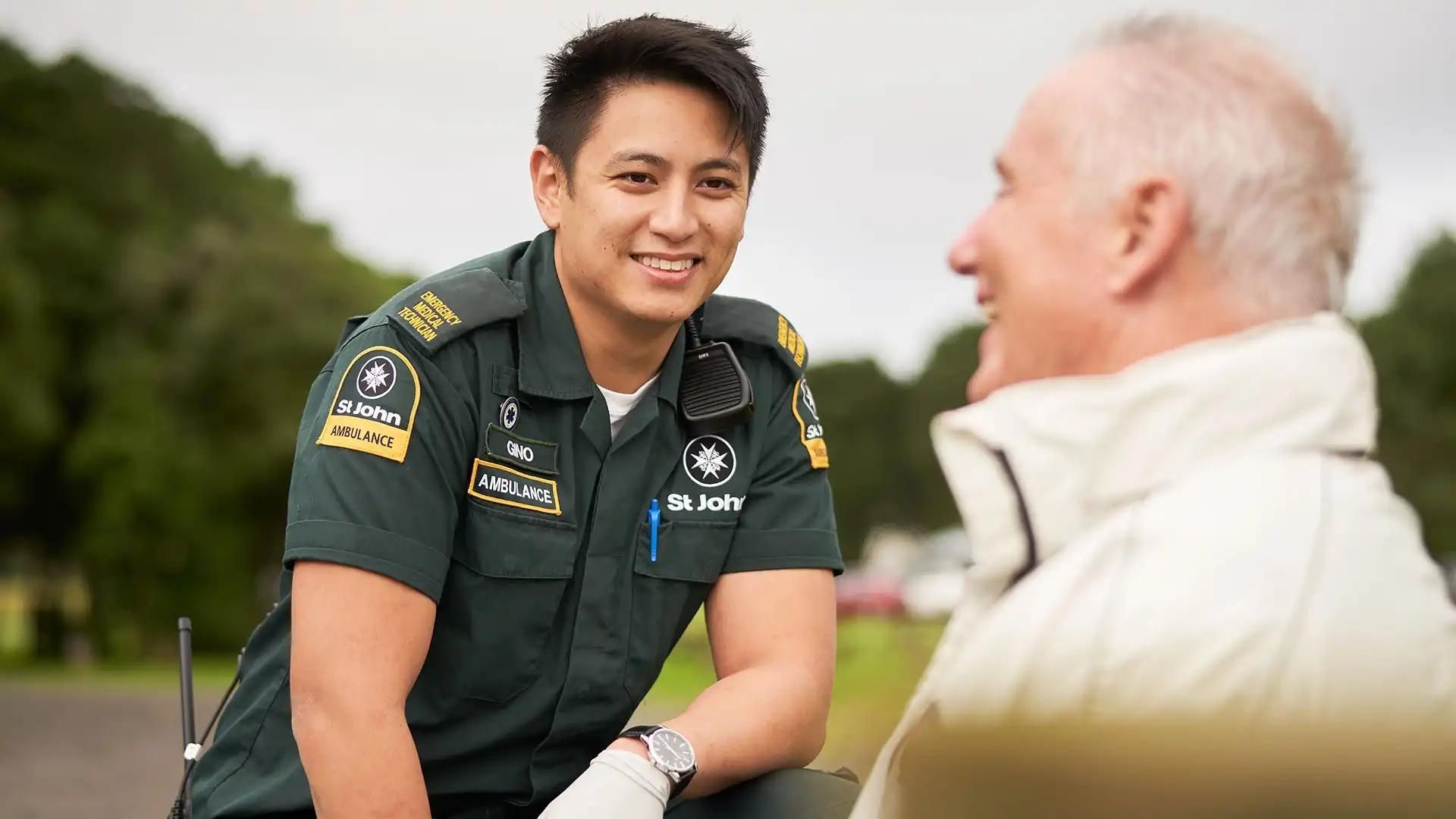
Tāmaki Makaurau/Auckland Aoteroa New Zealand
"It's an unprecedented opportunity."
With health workforce shortages nationally, the new Health New Zealand | Te Whatu Ora Paramedic Training Support Programme is helping to pave the way for Hato Hone St John’s Emergency Medical Technicians (EMT) and Emergency Medical Assistants (EMA) to complete Bachelor of Health Science Paramedicine degrees at either Auckland University of Technology or Whitireia New Zealand.
Peter Davis, Hato Hone St John Acting Operations Effectiveness Manager - Workforce Experience, said the initiative was one of a range of initiatives being undertaken to build capacity and staffing levels within health nationwide.
“At the moment, Aotearoa New Zealand is short of health workers. They've identified paramedics as one of those workforces, and they've come up with funding to promote the existing EMT and EMA-level ambulance officers to get into tertiary education and gain a degree that will cover the majority of their fees and financial support towards associated costs.
“Those associated costs are mainly to support with travel and accommodation to block courses, but also textbooks and other relevant study costs.
“I've been in the service 34 years, and I've never seen this occur before, where Health New Zealand pays for your degree. It's an unprecedented opportunity.”
Peter said Hato Hone St John was also introducing internal professional development sessions for this cohort, including time and stress management, work-life balance, and tools for reflective practice, with the aim of having two-hour online chats twice a year as they progress through their degrees.
Participants will remain working as EMTs or EMAs while they study part-time and have until the end of 2027 to complete their degrees. Along with other paramedicine graduates, once they qualify they’ll be eligible to apply for the organisation’s Te waharoa o Waka Manaaki | Graduate Paramedic Programme, which is aimed at consolidating the journey through recruitment, onboarding and orientation through to independent paramedic practice.
“As EMTs, effectively they've done about seven papers of a degree through a national diploma, so they get about one year of the degree off depending on the tertiary provider they go to. It does alter slightly. EMAs are not able to cross-credit as much, but will see similar benefits throughout this programme.”
There are 35 places available in the programme, with 34 of those places currently filled.
“Initially, the proposal was for about 20 participants; however, following significant interest, together with Health New Zealand | Te Whatu Ora, we have managed to offer 34 personnel a position within this programme. Some of our people have already started (in semester one), and we will see more start this semester and a couple next year”.
One of the key aims of the programme is to provide an opportunity for our workforce in rural and remote communities, as well as Māori and Pacific People, to upskill through the BHSc Paramedicine programme and be supported right the way through it.
“We've got areas in New Zealand that are still quite rural and isolated. We've got a small number of participants from the cities. We've got folks from all over, from Northland right through to rural Otago, from the very top to the very bottom of the country and all spots in between, and we are proud to see over 30% of participants be of Māori or Pacific ethnicity.”
“Another criteria were actually being a really good employee. We want to pick high-performing personnel and reward them.”

Get unlimited access to hundreds of ACP's top courses for your professional development.
Join Now